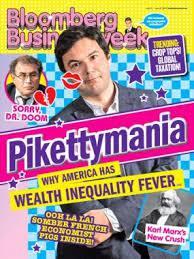 The rich-hating left went orgasmic over Thomas Piketty’s book Capital in the Twenty-First Century. I previously discussed the controversy. Now I’ve read the book.
The rich-hating left went orgasmic over Thomas Piketty’s book Capital in the Twenty-First Century. I previously discussed the controversy. Now I’ve read the book.
Not the thunderbolt of lefty wet dreams, it’s mainly dry economic history and analysis. Much I found interesting and informative. But it’s one of the most poorly organized books I’ve ever read, meandering repetitively to and fro.
Piketty’s big “revealed truth” is r>g – that is, return on capital (r) exceeds economic growth (g), which leads to capital accumulation, and thus rising inequality. His data does show r>g through most of history. Well, not data exactly, but mostly assumptions and estimates.
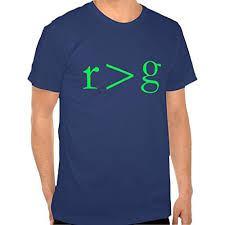
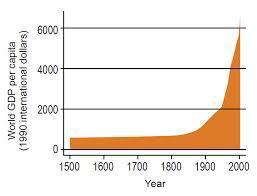
Inequality may also rise from pay gaps. Piketty focuses on corporate “supermanagers,” whose pay he doubts is justified by merit or productivity.
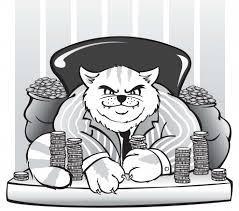
Much inequality talk casts the rich as squeezing the share of productivity begrudged to employees. That’s not how the economy works. By and large jobs pay what the market dictates, in order for businesses to attract and keep the needed workforce. They can’t just arbitrarily pay less; but nor can they pay more; if they want to stay competitive and employ anyone at all. Worker pay is not what’s left after the rich have “taken” their “share” (or more than their share).
Piketty’s constant use of the words “take” and “share” implies a zero sum game where one person’s larger share makes others smaller. Similarly, the language of “distribution” implies a pot of pre-existing wealth to be divided up, as though some god ladles out portions. But that’s not how an economy works either. In the main wealth is not “taken” but gained from other people handing it over willingly – in exchange for something (a product or service) they value even more. No zero sum game, that makes everyone richer. The pot grows.

We can debate who deserves what income, and I’d agree with Piketty that much high pay is undeserved. But should it be forcibly confiscated (as Piketty urges) in conformance to those debatable opinions? By what right may I (or anyone) dictate what’s fair for others to earn? I eschew such arrogant presumption.
Meantime Piketty acknowledges that bare mathematical inequality tells us little. In the past a small minority lived well (to the extent technology allowed), while most lived wretchedly. Today the whole picture has shifted dramatically to a higher level of overall societal wealth: the rich are even richer (hence mathematically more unequal), but the rest are much richer too. Indeed, their living standard is actually comparable to that of the past’s wealthiest (if not better, considering health and longevity).** That today’s inequality might mathematically equal 1800’s says nothing.
Yet Piketty writes as though modern inequality exactly parallels that of centuries past. Relative living standards are no part of his analysis.

The book indeed omits any analysis of economic inequality’s goodness or badness. The answer might seem self-evident. But clearly, perfect equality of wealth and income would not be just but unjust because different people earn/deserve differing outcomes; not to mention the matter of incentives for people to be productive (hardly theoretical in the experience of communist societies). The real question is what kind of inequality is acceptable. Some writers have attempted to grapple with this, but not Piketty. All he does is to project rising mathematical inequality – which he himself cautions tells us little.
Yet he’s terrified that the 1% will monopolize all wealth, with the 99% having nothing. The absurdity of such dystopian fantasies is simply this: who will buy all the goods and services whose sale undergirds the 1%’s wealth?

This book, obsessed with the rich and oblivious to the lives of others, would be better titled Envy. 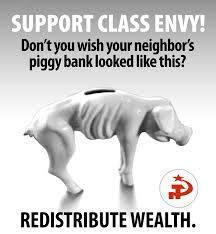
* Rising inequality is often blamed on tax cuts, the top mid-century U.S. income tax rate having exceeded 90%. But never discussed is what rich people actually paid. Piketty himself notes they can legally avoid having taxable income, allowing returns to accumulate untaxed instead. So in practice nobody ever paid anything like 90%. Yet Piketty forgets this in claiming that lower taxes have raised inequality. (Rich people still pay far the lion’s share of income taxes.)
** This actually applies even to the poorest in advanced societies; especially taking into account government benefits. Today’s U.S. “poverty” line equates to a middle class living standard of just a few decades ago. Poverty ain’t what it used to be. And even in developing countries, the almost universal abject deprivation of the past is inexorably going away, afflicting now only a small minority of world population.

Photo by Walker Evans
*** Nor would many Earthlings, romanticizing the “good old days.” But read, for example, Evans and Agee on the extreme poverty of rural 1930s Alabama. The work was grinding; the food disgusting; clothes made from used burlap sacks; copulation the only recreation. And those were white folks.
